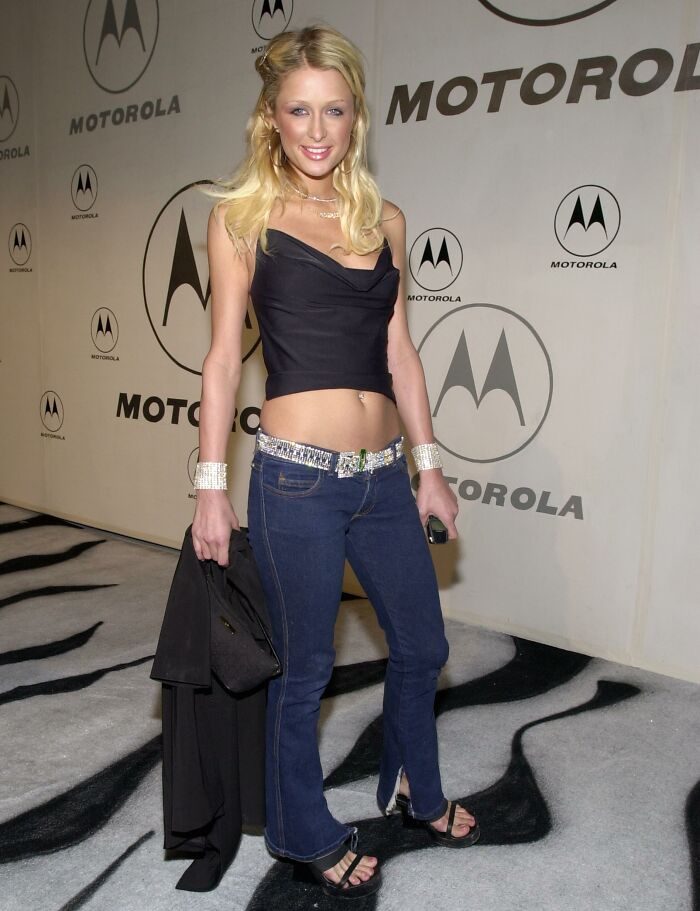Millennials are sending a heartfelt but urgent message to younger generations: Don’t chase thinness — we’ve been there, and it’s not healthy. With social media buzzing over the so-called “Y2K skinny” or “2000s thin” aesthetic, influencer and former model Kaila Uli is stepping in to set the record straight. The 33-year-old is warning Gen Z and Gen Alpha that the early-2000s body ideal was far more damaging than glamorous, and that reviving it risks undoing decades of progress in body positivity.

In a viral Instagram post with more than 187,000 likes, Uli broke down the harsh reality. She recalled how, during the height of the “Kate Moss heroin chic” era, celebrities like Jennifer Lopez were called “fat” and Drew Barrymore was labeled “chunky” — even though, by today’s standards, both would be considered slim. “The only reason you can call yourself skinny now is because of all the work that’s been done to change those standards,” she explained.

Uli, who modeled professionally in the early 2000s, shared that at 5’10” and 130 pounds, she was still sent home from jobs for being “too fat.” She warned followers, “What we’re not going to do is body-shame and say, ‘Oh, I’m Y2K skinny,’ because mama, you would not survive the 2000s. Y2K skinny is a lot worse than you think.” She even revealed having recurring nightmares about famed designer Karl Lagerfeld calling her overweight.
Her post resonated with countless Millennials who chimed in with their own stories of surviving that decade’s punishing beauty standards. One commented, “Raise your hand if you’ve been victimized by Y2K standards.” Another wrote, “The early 2000s is why every Millennial woman I know still has body dysmorphia today.” Many expressed regret over spending their “hottest, slimmest years” feeling insecure instead of enjoying life and building a healthy relationship with food.

For Uli, the damage was deeply personal. She revealed to Newsweek that growing up in Los Angeles during that time meant relentless pressure to lose weight. Misconceptions about what “Y2K skinny” looked like only highlight how extreme the standards truly were. She began dieting at 14 after seeing tabloid photos labeling Jessica Simpson as obese. In a disturbing confession, she recalled one day taking a meat cleaver to her inner thigh in a desperate attempt to remove fat — fortunately unsuccessful because the blade was dull. That moment, however, triggered a years-long battle with eating disorders.
Experts say warnings like Uli’s should be taken seriously. Dr. Heidi Lescanec of Pink Zone told the New York Post that when Millennial women talk about Y2K skinny, it’s “not from superiority — it’s from survival. It’s a warning flare.” She pointed out that Kate Moss’s infamous mantra, “Nothing tastes as good as skinny feels,” left lasting emotional scars on many women who now feel a responsibility to prevent the next generation from repeating those mistakes.
Mental health professionals agree the trend can fuel anxiety, low self-esteem, and disordered eating, especially in a world where genetic and economic differences make achieving such thinness impossible for many. Stephen Buchwald of Manhattan Mental Health warns that constantly seeing curated, unrealistic images of thin bodies online can make people feel like they’re never “good enough.”

While Gen Z is often praised for embracing body positivity, critics argue that viral trends like “SkinnyTok” dangerously romanticize starvation as discipline. Some even promote toxic slogans like, “If your stomach is growling, pretend it’s applauding you.” In today’s algorithm-driven social media culture, these harmful messages can spread under lighthearted hashtags, masking the serious risks they pose.
For Millennials like Uli, speaking out isn’t about nostalgia — it’s about protecting younger generations from repeating a painful cycle. The message is clear: the Y2K skinny ideal wasn’t glamorous, it was destructive. And chasing it now could mean sacrificing not just body positivity, but mental and physical health.





